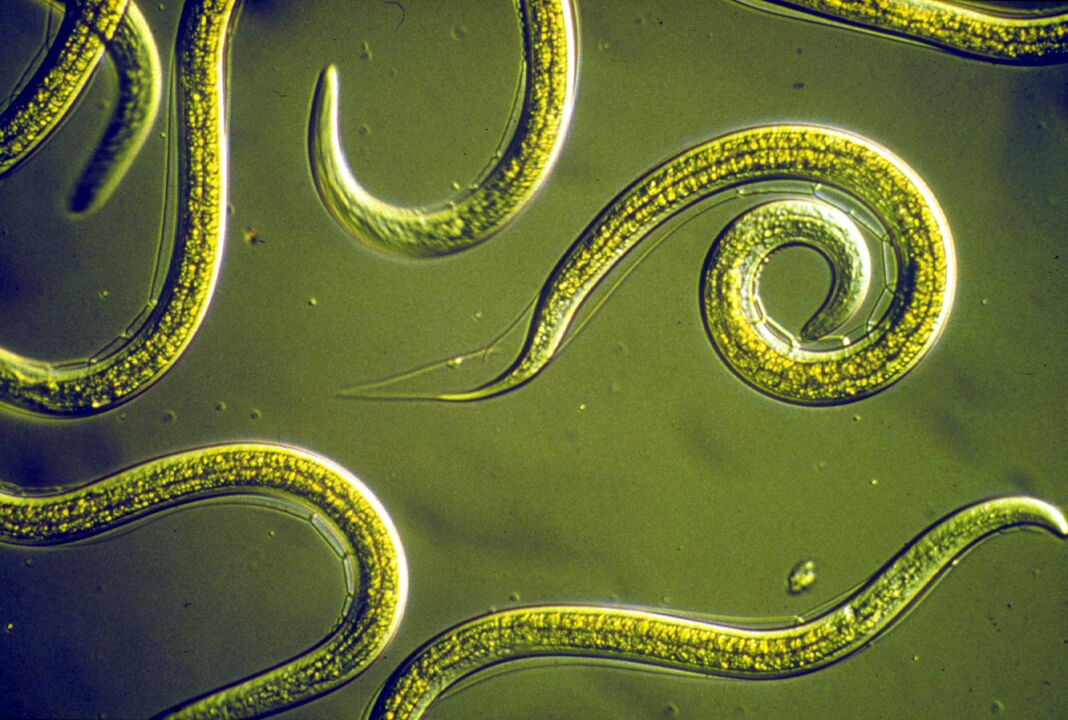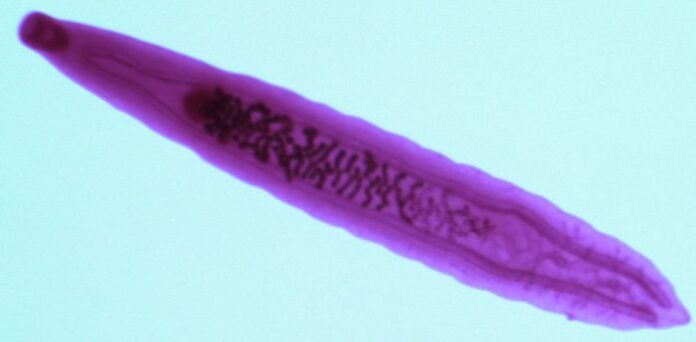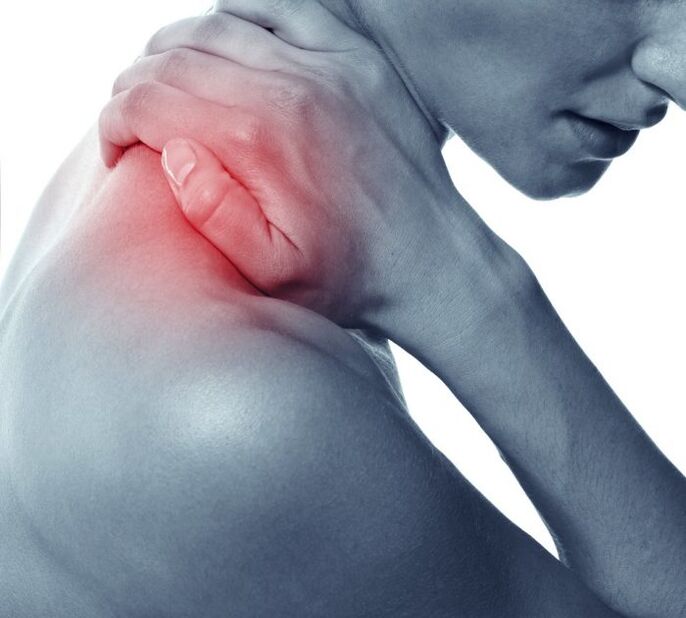Anyone can experience a worm infection. Toddlers - going to kindergarten, adults - for other reasons. Despite all precautions, you should be aware of the signs of worms in humans so that the disease can be detected and treatment can begin. What are worms, where do they settle and how they manifest - we'll consider in more detail.
Which organs are affected by worms?

There are two types of invasion: abdominal and tissue. Depending on the species, habitats are also divided into:
- Cavitation worms colonize the small and large intestines. In particular, the first part of the small intestine is affected by tapeworms, hookworms, and roundworms. The lower part of the small intestine is the habitat of dwarf tapeworms and pinworms. The large intestine is most often the habitat of whipworms.
- Tissue worms can affect any type of organ: liver, brain, lymph nodes, bile ducts.
important! In the initial stages of the development of the invasion, it is impossible to identify signs of the presence of worms in the patient. Although the number of worms is small, waste toxicity poisoning is within the normal range, and the body itself can cope with the invasion. The appearance of features or acute symptoms indicates a marked increase in the number of worm invasions: the maturation of the individual and its dynamic development.
chain type

Identify the signs of adult worms, and you should understand what kind of invasion we're talking about:
- Frasolavi. The chain gets its name from the thickened filaments at the rear end. The parasite's life cycle is straightforward. Habitat - Tropical, subtropical. The chains are in the cecum, so they are difficult to etch.
- nematodes. Suborder Ascaris that lives in nature and humans. The most famous representatives: roundworms, pinworms.
- fluke. Flat flukes. They pose a great threat to the body of the carrier as they are able to settle in any organ, system. Representatives: schistosomiasis, snake nematode.
- Pork tapeworm (taenia). Tapeworms are hermaphrodites. The head has sturdy hooks to attach to the wall, and they affect the brain, gut, liver, eyes, and muscles. Consequences of untreated: paralysis, carrier death.
All types of worms are found in humans. After suffering from ascariasis, ascariasis, and bilobal ascariasis, the patient lacks nutrition, and the intestines cannot absorb food residues normally. Consequences of invasion: metabolic disturbances, neurohumoral responses.
Some facts about the infection mode:
- Ascariasis - unwashed vegetables, fruits, hands;
- raw or slightly salted fish, caviar - diphyllobothriasis;
- Pinworms - Contact Home Methods. The developmental period lasts for up to 60 days, followed by a chronic aggressive phase, characterized by a decline in immunity and a high incidence of infectious diseases, aggravation of the chronic process.
Human worm signs
General symptoms of adult worms depend on the location of the worm. The main danger is parasites that live in vital organs. Worms appear, symptoms are implicit: weakness, cough. Although a full diagnosis is required, examination is necessary. However, there are many signs you can tell for sure: where the worms are and whether they are there.
brain

In most cases, there are no obvious symptoms, but if the worm lives in the human brain, the patient may experience:
- persistent nausea;
- frequent vomiting;
- severe weakness;
- drowsy consciousness;
- vision, hearing loss;
- Body temperature fluctuations for no apparent reason;
- epilepsy.
fact! In most cases, parasites in the brain are only found after an autopsy.
In the body

Hundreds of known parasites can inhabit patients. It is difficult to determine whether worms are present in adults. Symptoms vary by localized area: heart, liver, lung, subcutaneous. Common signs of adult worms:
- Muscle and joint pain;
- skin deterioration;
- Weight jump: decrease or set;
- severe persistent fatigue;
- Immunity drops immediately.
fact! Some worms have the ability to crawl from the anus to the perineum, penetrate the bloodstream into other organs, emerge in the abdominal cavity and affect the nose and ears.
in the intestines

The most common worm in humans, with more pronounced symptoms, can be in the large and small intestines. Infection occurs through the mouth, through contact. The period of larval and adult development from the egg takes place in the intestinal mucosa. The parasites absorb nutrients for themselves, preventing them from being absorbed by the gut. Because of this, there are intestinal problems that lead to adult worms. symptom:
- Stomach is often swollen;
- the stool is broken;
- bloating;
- weight changes;
- Constantly strong craving to eat.
Of course, symptoms may vary for worms, and may vary if the patient has characteristic signs of stomach problems. This is why correct diagnostic measures are so important. Only an expert can determine exactly: the location of the worm, the type and dynamics of the development of the invasion.
Signs of helminthiasis depend on the type of parasite
Symptoms of worms in adults may differ from those in children. Strong immunity repels invasion, but children do not have such characteristics. Knowing the signs of the presence of worms in the body makes it easier to understand the cause of the disease and to consult a doctor when an infection is initially suspected. Infectious disease specialists, parasitologists, helminthologists - experts with the required information will quickly find out where worms are in the human body and how to get rid of them.
Each parasite causes its own symptoms:
- Tapeworms have intestinal problems: loss of appetite, sleep disturbance, flatulence;
- From round - cough, bloating, gas formation, loss of appetite.
important! Roundworms, or roundworms, grow up to 40 centimeters in length, move easily along the intestinal wall, and live in the lungs and liver. This is a very dangerous intrusion and should be dealt with.
Whether or not tapeworms or roundworms have colonized the body, they need to be removed. Even the smallest amount of invasion can cause serious damage to the body, and in large numbers, the parasite poisons the host and often causes the death of the patient. Knowing where the worms live, don't rush to chalk up frequent bloating as common indigestion, maybe it's a sign of worms, which means it's time to see a doctor.






































